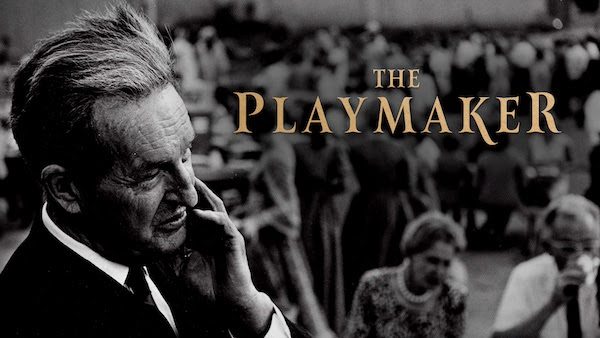
Prolific playwright, novelist, educator, activist and native son of North Carolina Paul Green left an enduring legacy and body of work that continues to resonate with audiences and scholars alike. On Thursday at 10 p.m., North Carolina public television will premiere a highly anticipated documentary by filmmaker Hannah Bowman of Bardstown, Kentucky, that explores Green’s life, creative oeuvre and progressive activism during a tumultuous era in American history.
The biographical film, Bowman’s first feature, spans Green’s rural upbringing in Harnett County through studying philosophy at UNC Chapel Hill to receiving national acclaim for plays produced on Broadway and movie scripts written in Hollywood. “The Playmaker” takes a deep dive into how Green’s controversial plays made waves in the areas of integration, capital punishment and chain gang reform in North Carolina in the 1920s.
Over the last decade, Bowman has meticulously researched volumes of text, photographs and archival footage to bring “The Playmaker” to audiences. To ensure the documentary’s authenticity, most of the footage was sourced from public domain materials from the National Archives, and photos were mainly from the Paul Green Papers at UNC Chapel Hill.
Inspired by Green’s outdoor musical “The Stephen Foster Story,” Bowman started with the idea of doing a documentary about the play itself. But the more she researched the subject, the more interested she became in the story of the playwright.
“There were several biographies written about him that just captured my interest. He seemed to be a perfect person.” Bowman said in an interview. “As I researched more and more and listened through 30-plus hours of his interviews, I got to know him pretty well, I think.
“What I hope people see in the film is a portrait of Paul Green as a human. He created a lot of incredible things and knew a lot of really influential people in his lifetime. He was a successful white man from his period. In my community of Bardstown, he was trying to illustrate that the minstrel show was not an acceptable form of entertainment and that it denigrated a whole group of people. He used blackface — a meme still alive in the 1950s.”
Green’s career spanned multiple disciplines, including playwriting, screenwriting, short story writing and nonfiction. His debut play, “In Abraham’s Bosom,” earned him a Pulitzer Prize and paved the way for six more successful Broadway productions. Green’s passion for combining various artistic elements, such as dance, music and lighting, into his work was driven by his desire to impact American society positively.
One of his most enduring legacies is the Symphonic Outdoor Drama, a genre he helped develop. His first production in this style, “The Lost Colony,” has been a beloved annual tradition in Manteo since its premiere in 1937. Today, more than 50 historical dramas, including five of Green’s original works, are still staged annually across the United States.
Green taught philosophy and drama at Chapel Hill until 1944 when he retired to devote his time to writing. In addition to his early Pulitzer Prize, Paul Green’s awards include two Guggenheim Fellowships, the National Theatre Conference plaque, an American Theatre Association citation, the Frank P. Graham Award and the North Carolina Award for Literature. In 1979, the General Assembly named him North Carolina’s dramatist laureate. He received eight honorary doctorates and was posthumously inducted into the Theatre Hall of Fame in New York City. Through his life and writing, he acted and spoke in support of the fundamental rights of all humanity.
The Paul Green Foundation, established in 1983 after the playwright’s death, makes grants to support the causes Green championed and provided support for Hannah Bowman in the making of her film.
“The Playmaker” premieres on PBS North Carolina on Thursday at 10 p.m. The documentary will stream at video.pbsnc.org or the PBS app.
